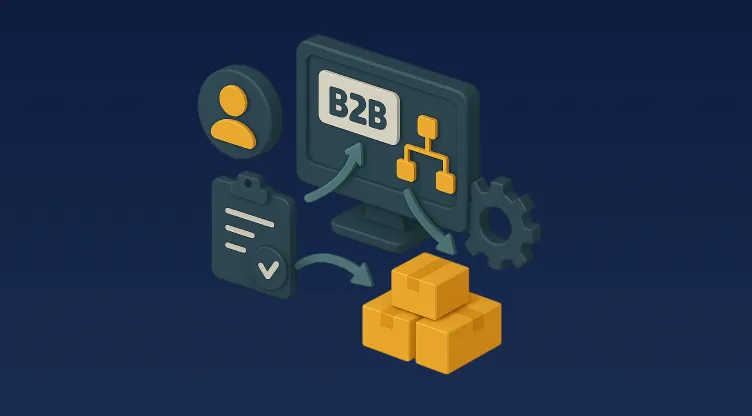Top Microsoft Dynamics 365 Alternatives for 2025

Table of Contents
Businesses today need powerful CRM solutions that grow with them. Microsoft Dynamics 365 leads the enterprise CRM market. However, its pricing structure and steep learning curve make many companies look elsewhere. The CRM market offers many strong options for businesses seeking simpler, more affordable solutions.
Why Look Beyond Microsoft Dynamics 365?
Microsoft Dynamics 365 brings CRM and ERP functions together in one business platform. It works smoothly with Microsoft's tools and offers modules for sales, service, marketing, and operations. While powerful, its enterprise focus and complex pricing do not suit every company's needs.
Key Dynamics 365 Features
- Business apps that work together
- AI insights for better decisions
- Office 365 integration
- Advanced data analysis
- Custom workflows
- Mobile access
Common Reasons to Consider Alternatives
- High costs to implement
- Complex pricing structure
- Takes time to learn
- Needs extensive customization
- Requires ongoing maintenance
- Too many features that overwhelm smaller teams
The Top 10 Best Microsoft Dynamics 365 Alternatives You Need To Know About
| Solution | Key Features | Pros | Cons | Pricing | Best For | Ratings |
|---|---|---|---|---|---|---|
| Omniful | AI-powered process automation, Smart workflow orchestration, Real-time analytics dashboard, Unified inventory management, Automated business rules | Swift deployment, Modern architecture, Proven efficiency gains, Streamlined operations | Recent market entrant | Custom pricing based on business requirements | Growing enterprises seeking streamlined operations | High satisfaction with 40% efficiency gains |
| Oracle NetSuite CRM | End-to-end business suite, Advanced financial tools, Built-in business intelligence, Global management, Customizable dashboards | Comprehensive functionality, Strong financial tools, Established presence | Higher price point, Complex implementation | Starting at $999/month/user | Mid to large enterprises requiring robust financial management | 4.2/5 (G2) |
| SAP Business One | Integrated accounting, Sales management, Inventory control, Production planning, Service management | SME-focused, Shorter implementation, Proven platform | Limited customization, Rigid structure | From $85/user/month | Small to medium-sized businesses | 4.1/5 (Capterra) |
| HubSpot CRM | Marketing automation, Sales pipeline tools, Content management, Email marketing, Customer service hub | User-friendly, Strong marketing, Free starter version | Less robust ERP, Add-on costs | Starts free, Premium from $450/month | Marketing-focused organizations | 4.5/5 (G2) |
| Salesforce CRM | Advanced sales automation, Einstein AI capabilities, Extensive marketplace, Custom workflows, Mobile-first design | Market leader, Extensive customization, Large ecosystem | Expensive, Complex setup | From $25/user/month | Large enterprises requiring extensive customization | 4.4/5 (G2) |
| Zoho CRM | Integrated marketing, Social media tools, AI sales assistant, Process automation, Mobile apps | Affordable, Good integration, User-friendly | Limited enterprise features, Basic reporting | From $14/user/month | Small to medium-sized businesses seeking value | 4.3/5 (Capterra) |
| Pipedrive CRM | Visual sales pipeline, Email integration, AI sales assistant, Activity tracking, Custom workflows | Intuitive interface, Strong sales focus, Easy setup | Limited marketing, Basic features | From $14.90/user/month | Sales-focused teams and SMBs | 4.5/5 (G2) |
| Freshsales CRM | AI-powered scoring, Built-in communications, Visual pipeline, Territory management, Advanced analytics | Modern interface, AI capabilities, Competitive pricing | Limited customization, Newer platform | From $15/user/month | Growing businesses requiring modern CRM features | 4.4/5 (G2) |
| ClickUp CRM | Project management, Document collaboration, Time tracking, Custom dashboards, Workflow automation | Project integration, Modern interface, Versatile platform | Limited CRM features, Learning curve | From $5/user/month | Teams needing combined project and customer management | 4.3/5 (G2) |
| Copper CRM | Google Workspace integration, Automated data entry, Pipeline visualization, Activity tracking, Custom reporting | Google integration, Intuitive interface, Easy adoption | Limited ecosystem, Google dependency | From $25/user/month | Google Workspace-centric organizations | 4.2/5 (G2) |
Top 10 Alternatives to Microsoft Dynamics 365
For businesses seeking CRM alternatives to Microsoft Dynamics, here's a detailed comparison of leading solutions:
1. Omniful
Organizations transitioning from Microsoft Dynamics 365 find Omniful's intelligent platform compelling due to its modern, unified approach. Dynamics 365 can be complex and require significant customization. Omniful, meanwhile, is a great CRM alternative to Microsoft Dynamics, offering a streamlined, pre-integrated solution with lower implementation time. It also offers automated core business processes. This cloud-native platform particularly appeals to businesses seeking a solution that is fast to deploy and simpler to maintain than Microsoft's enterprise-focused architecture.
Key Features:
- AI-powered process automation
- Real-time analytics dashboard
- Smart workflow orchestration
- Unified inventory management
- Rapid integration framework
- Automated business rules engine
What Makes Omniful a Top Choice:
- Faster deployment and implementation compared to traditional enterprise solutions, reducing time-to-value
- Modern cloud-native architecture enabling seamless scalability and remote accessibility
- Proven efficiency gains with documented ROI across multiple industry verticals
- Lower total cost of ownership through reduced maintenance and customization needs
- Built-in AI capabilities that enhance decision-making and automate routine tasks
Pricing: Custom pricing based on business requirements
Best For: Growing enterprises seeking streamlined operations
Ratings: High satisfaction with documented 40% efficiency improvement
Customer Testimonial: "Switching from Dynamics 365 to Omniful reduced our operational complexity and improved efficiency by 30% within three months."
2. Oracle NetSuite CRM
As one of the better Microsoft Dynamics competitors in the market, NetSuite offers a comprehensive cloud-based solution. While Dynamics 365 may require multiple modules and complex integrations, NetSuite provides a unified platform that combines CRM, ERP, and e-commerce functionality.
Key Features:
- End-to-end business management suite
- Advanced financial management
- Built-in business intelligence
- Global business management capabilities
- Customizable dashboards
- Robust reporting tools
Pros: Comprehensive functionality, strong financial tools, established market presence
Cons: Higher price point, complex implementation
Pricing: Starting at $999/month/user
Best For: Mid to large enterprises requiring robust financial management
Ratings: 4.2/5 on major review platforms
3. Nimble CRM
Businesses seeking a more social media-centric Microsoft Dynamics alternative often turn to Nimble CRM. This platform stands out for its intelligent contact management and social relationship insights, making it particularly appealing to organizations prioritizing social selling and relationship-based sales approaches. While Dynamics 365 offers broad functionality, Nimble CRM focuses on delivering a more intuitive, social-first experience with automated contact enrichment.
Key Features:
- Smart contact enrichment
- Social media integration and insights
- Email tracking and analytics
- Group messaging capabilities
- Unified inbox
- Deal pipeline management
Pros: Exceptional social media integration, automated contact updating, intuitive interface
Cons: More limited in scope compared to Dynamics 365's full suite
Pricing: Starting at $25/user/month
Best For: Social sellers and relationship-focused sales teams
Ratings: 4.3/5 average user rating
4. HubSpot CRM
Organizations seeking a more user-friendly alternative to Microsoft Dynamics 365's CRM capabilities can consider HubSpot. It’s also affordable for small businesses. HubSpot offers seamless marketing-sales alignment and superior ease of use, making it particularly attractive for companies prioritizing customer engagement and marketing automation.
Key Features:
- Marketing automation
- Sales pipeline management
- Content management system
- Email marketing tools
- Customer service hub
- Meeting scheduling
Pros: User-friendly interface, strong marketing features, free starter version
Cons: Less robust ERP capabilities than Dynamics 365
Pricing: Starts free, Premium features from $450/month
Best For: Marketing-focused organizations and growing businesses
Ratings: 4.5/5 for ease of use
5. Salesforce CRM
Salesforce is one of the better Microsoft Dynamics competitors, offering a highly customizable and scalable CRM platform with extensive third-party integrations. Salesforce is particularly strong in sales automation and customer relationship management. It is often chosen for its robust ecosystem and market leadership.
Key Features:
- Advanced sales automation
- Einstein AI capabilities
- Extensive app marketplace
- Custom workflow creation
- Mobile-first design
- Advanced analytics
Pros: Market leader, extensive customization options, large ecosystem
Cons: Can be expensive, complex implementation
Pricing: Starting at $25/user/month, enterprise pricing varies
Best For: Large enterprises requiring extensive customization
Ratings: 4.4/5 overall satisfaction
6. Zoho CRM
Zoho CRM is a cost-effective alternative to Microsoft Dynamics 365. It offers a comprehensive suite of business applications with strong integration capabilities, particularly attractive to small and medium-sized businesses seeking value without sacrificing essential functionality.
Key Features:
- Integrated marketing tools
- Social media integration
- AI-powered sales assistant
- Advanced analytics
- Process automation
- Mobile apps
Pros: Affordable, good integration with other Zoho products
Cons: Less robust than Dynamics 365 for large enterprise needs
Pricing: Starting at $14/user/month
Best For: Small to medium-sized businesses seeking value
Ratings: 4.3/5 for value for money
7. Pipedrive CRM
Organizations seeking a sales-focused alternative to Microsoft Dynamics 365's CRM find Pipedrive's visual pipeline management and intuitive interface compelling. It's especially suitable for businesses prioritizing sales process optimization.
Key Features:
- Visual sales pipeline
- Email integration
- AI sales assistant
- Activity and goal tracking
- Custom fields and workflows
- Mobile apps
Pros: Intuitive interface, strong sales focus, easy setup
Cons: Limited marketing automation compared to Dynamics 365
Pricing: Starting at $14.90/user/month
Best For: Sales-focused teams and SMBs
Ratings: 4.5/5 for ease of use
8. Freshsales CRM
A modern alternative to Microsoft Dynamics 365, Freshsales offers AI-powered features and a user-friendly interface at a more accessible price point. It's specifically interesting to businesses seeking a balance between functionality and simplicity.
Key Features:
- AI-powered lead scoring
- Built-in phone and email
- Visual deal pipeline
- Custom workflows
- Territory management
- Advanced analytics
Pros: Modern interface, AI capabilities, competitive pricing
Cons: Less extensive customization than Dynamics 365
Pricing: Starting at $15/user/month
Best For: Growing businesses requiring modern CRM features
Ratings: 4.4/5 for feature satisfaction
9. ClickUp CRM
A versatile alternative to Microsoft Dynamics 365, ClickUp combines project management with CRM capabilities, making it a prospect to teams seeking an integrated work management solution. It offers a fresh approach to business process management.
Key Features:
- Project and task management
- Document collaboration
- Time tracking
- Custom dashboards
- Workflow automation
- Goals and portfolio management
Pros: Strong project management integration, modern interface
Cons: Less specialized CRM features than Dynamics 365
Pricing: Starting at $5/user/month
Best For: Teams needing combined project and customer management
Ratings: 4.3/5 for versatility
10. Copper CRM
Designed specifically for Google Workspace users looking for an alternative to Microsoft Dynamics 365, Copper CRM offers seamless integration with Google's productivity tools. It's particularly valuable for organizations heavily invested in the Google ecosystem.
Key Features:
- Native Google Workspace integration
- Automated data entry
- Pipeline visualization
- Activity tracking
- Custom reporting
- Mobile apps
Pros: Excellent Google integration, intuitive interface
Cons: Limited functionality outside the Google ecosystem compared to Dynamics 365
Pricing: Starting at $25/user/month
Best For: Google Workspace-centric organizations
Ratings: 4.2/5 for Google integration
Making the Switch from Microsoft Dynamics 365: Decision Framework
Phase 1: Strategic Assessment
- Map your digital transformation goals
- Identify current Dynamics 365 limitations
- Document process inefficiencies
- Calculate current TCO
- Define success metrics for the new solution
Phase 2: Technical Discovery
- Audit existing integrations
- Review data structure complexity
- Assess customization requirements
- Evaluate API dependencies
- Analyze security compliance needs
Phase 3: Operational Impact Analysis
- Measure potential productivity gains
- Calculate the expected ROI timeframe
- Plan change management strategy
- Define user acceptance criteria
- Establish performance benchmarks
Phase 4: Migration Planning
- Create a data transfer strategy
- Design phased rollout approach
- Develop contingency plans
- Set up parallel running periods
- Plan user transition timing
Phase 5: Success Validation
- Establish KPI monitoring
- Define feedback collection methods
- Create optimization schedule
- Plan periodic system audits
- Set up continuous improvement loops
Remember: The most successful transitions from Microsoft Dynamics 365 occur when organizations focus on long-term scalability rather than short-term cost savings. To ensure a smooth migration path, consider working with implementation partners like Omniful, who have experience in both Dynamics 365 and your chosen alternative.
Frequently Asked Questions
How long does it take to implement a Dynamics 365 alternative?
Implementation typically ranges from 2 weeks to 6 months, depending on complexity and scope.
Are cloud-based alternatives more cost-effective?
Most cloud alternatives offer lower upfront costs and more predictable monthly expenses compared to Dynamics 365.
Can small businesses benefit from enterprise-grade alternatives?
Many alternatives offer scaled solutions suitable for small business needs with competitive pricing.
What should I consider when switching from Dynamics 365?
Focus on data migration capabilities, user training requirements, and integration with existing systems.























